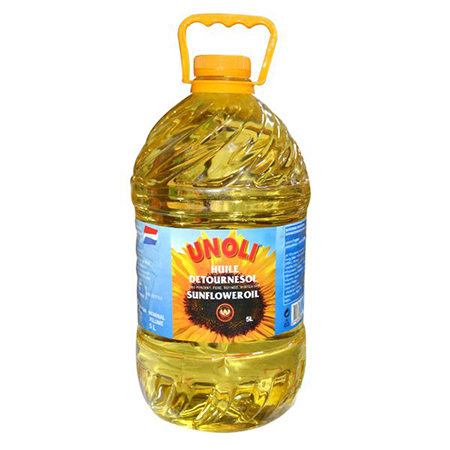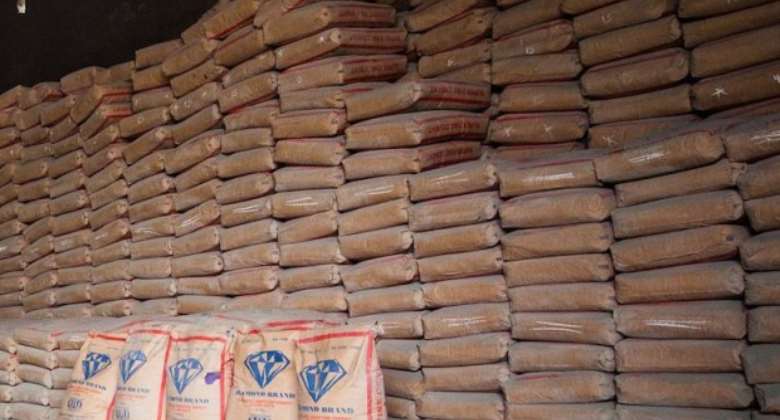Price of Sunflower Oil: Have you ever wondered about the liquid gold that graces our kitchens and enriches our culinary experiences? Sunflower oil, with its golden hue and versatile qualities, holds a special place in Ghanaian households. But have you ever paused to consider the factors that determine its price? How does the cost of sunflower oil fluctuate, and what influences these changes?
In this article, we delve into the intriguing world of sunflower oil prices in Ghana. Beyond being a kitchen staple, sunflower oil plays a significant role in the country’s economy and daily life. Join us as we uncover the elements that contribute to the cost of this essential ingredient, shed light on the market dynamics, and understand why the price of sunflower oil might rise or fall.
Price of Sunflower Oil in Ghana
Sunflower oil is a popular cooking oil derived from the seeds of the sunflower plant. It is known for its light flavour, high smoke point, and health benefits.
Sunflower oil is produced by extracting oil from the seeds of the sunflower plant. The seeds are first cleaned and then pressed to extract the oil. The oil is then refined to remove impurities and enhance its quality.
Sunflower oil comes in different varieties, including refined, unrefined, and high oleic. Refined sunflower oil undergoes further processing to remove impurities and has a neutral flavour. Unrefined sunflower oil is less processed and retains more of its natural flavour and nutrients. High oleic sunflower oil is made from sunflower seeds with a higher oleic acid content, making it more stable and suitable for high-temperature cooking.
Sunflower oil is rich in vitamin E, which is an antioxidant that helps protect cells from damage. It also contains healthy fats, including monounsaturated and polyunsaturated fats, which are beneficial for heart health. Sunflower oil is low in saturated fats and cholesterol-free.
Sunflower oil is versatile and can be used for various cooking methods, including frying, sautéing, baking, and salad dressings. Its high smoke point makes it suitable for high-temperature cooking without breaking down and producing harmful compounds.
Consuming sunflower oil in moderation as part of a balanced diet can have several health benefits. It may help reduce inflammation, lower cholesterol levels, and support heart health. The vitamin E content in sunflower oil also contributes to healthy skin and hair.
Brands of Sunflower Oil in Ghana
There are several brands of sunflower oil available in Ghana. Here are some of the brands in Ghana:
- Unoli Sunflower Oil
- Freedom Refined Sunflower Oil
- Ole Sunflower Oil
- Cel-Star
- GFS Sunflower Oil
- Biray Sunflower Oil
- KTC Sunflower Oil
- Yonca Sunflower Oil
- Tesco Sunflower Oil
- Pura Sunflower Oil
- Lele
Price of Sunflower Oil in Ghana
The price of sunflower oil varies depending on the brand, quantity, and location.
The price of 5 Litres of Sunflower oil ranges between GHS 185 – and GHS 300 whereas the price of 1 litre of sunflower oil ranges between GHS 35 – and GHS 55.
Also, The retail price range for sunflower oil is between GHS 53.76 and GHS 96.77 per kilogram or between GHS 24.38 and GHS 43.89 per pound.
Factors Affecting the Price of Sunflower Oil
The price of sunflower oil in Ghana can be affected by various factors, including:
Supply and Demand: The price of sunflower oil can be affected by the balance between supply and demand. When the demand for sunflower oil is high and the supply is low, the price tends to increase. Conversely, when the supply is high and the demand is low, the price tends to decrease.
Production Costs: The cost of producing sunflower oil can also affect its price. Factors such as the cost of raw materials, labour, and transportation can impact the final price of the product.
Brand: The brand of sunflower oil can also affect its price. Some brands may be more expensive due to their reputation, quality, or marketing efforts.
Location: The location of the seller can also affect the price of sunflower oil. For example, the price of sunflower oil in rural areas may be lower than in urban areas due to differences in transportation costs and market demand.
Currency Exchange Rates: The exchange rate of the Ghanaian Cedi against other currencies can also affect the price of sunflower oil. If the Cedi is weak against other currencies, the price of sunflower oil may increase.
Government Policies: Government policies such as taxes, import duties, and subsidies can also affect the price of sunflower oil. For example, if the government imposes high taxes on imported sunflower oil, the price may be higher than locally produced sunflower oil.
Recommended Resources:
As we conclude our exploration of sunflower oil’s price in Ghana, we have uncovered a tapestry of factors that influence its cost. From government policies to local production and demand, the price of this kitchen essential is a reflection of a complex web of dynamics. While we have delved into the present scenario, it’s important to remember that these dynamics are ever-evolving, shaping the future of sunflower oil prices.
As consumers, it’s crucial to remain informed about the factors impacting sunflower oil prices. By understanding these elements, we not only make wiser choices for our kitchens but also contribute to the broader discussions around agriculture, trade, and economic growth. Let’s continue to stay curious, asking questions, and seeking knowledge about the products that touch our lives daily.
Whether you are a cooking enthusiast or a curious observer of economic trends, the story of sunflower oil’s price in Ghana is a reminder that every product we interact with carries its own narrative. As we pour this golden liquid into our pans, let’s also pour our interest and awareness into the world it comes from.
So, next time you browse the supermarket aisle or the local and reach for that bottle of sunflower oil, remember the journey it has taken; from sun-kissed fields to your kitchen. And in that moment, you become part of this journey, shaping not just the price of a product but the story it tells.






